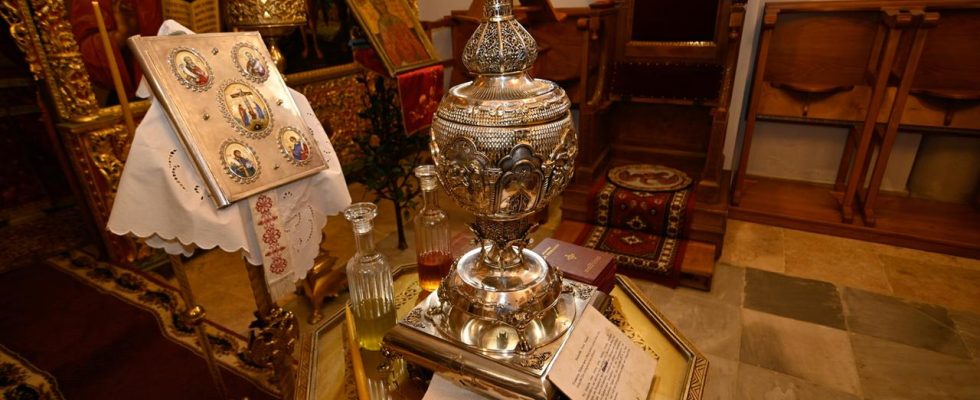At the coronation ceremony of Charles III. the most sacred part is the anointing. It takes place behind closed doors – and is a ritual intended to cement the power of the new regent.
Charles is already king. He was the moment his mother, Queen Elizabeth II, died. So why is another coronation held?
The theologian Dr. George Gross of London’s King’s College, who researches the history of coronations, puts it this way: “A coronation makes the matter official when the monarch is publicly presented as king.”
Three part oath
Three essential elements determine the ceremony: the anointing, the oath and the coronation itself. In the three-part oath, the monarch vows to uphold the law, to exercise justice and justice, to uphold the Protestant-Reformed denomination and the Church of England as an institution to protect.
The oath thus binds the monarch to the state, but also obliges him to the church and faith.
Anointing the holiest part
The anointing is considered the most sacred part of the entire coronation service. It is based on the Old Testament and the anointing of King Solomon, which is also expressed in the traditional coronation hymn “Zadok the Priest” by George Frideric Handel.
The anointing is a religious act of sanctification, but also of the transfer and legitimacy of political power. British kings hardly own the latter these days, but they still have a prominent position. This is reinforced by the anointing. Theologian George Gross says:
In a religious sense, one exalts a person whether one makes him a priest, a bishop, or a king, which is similar to a priest or a bishop. It makes them holy, almost holy. Some monarchs thought that would make them divine, others attached much less to it. That depends on the person. But the action sanctifies someone, that’s the religious purpose.
Charles, a god-given king?
The anointing used to be understood as a visible sign of divine right. When asked whether it still carries with it the assumption that Charles is a god-given king, theologian Gross says: “In a way, yes! People in the 20th and 21st centuries might not think that’s possible, but I think that it had a profound impact on Queen Elizabeth II.”
She felt that this was a very important moment for her faith and therefore also for her service to the country. “The oath and anointing are a lifetime commitment,” Gross said.
Vegan olive oil from Jerusalem is used for the anointing of King Charles. In the past, the oils were said to have contained ambergris and civet, substances from the sperm whale’s digestive tract and the civet’s anal gland. Those days are over.
Anointing behind screen
However, what King Charles also insists on is that the anointing remains hidden from the interested public eye. It is carried out behind a specially designed screen.
This moment is considered too sacred and intimate for display. But maybe it’s also about preserving the last remnant of the mystical that gives the royal its magic.

